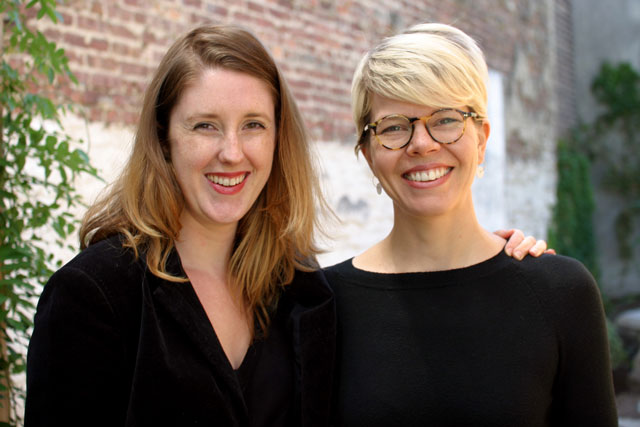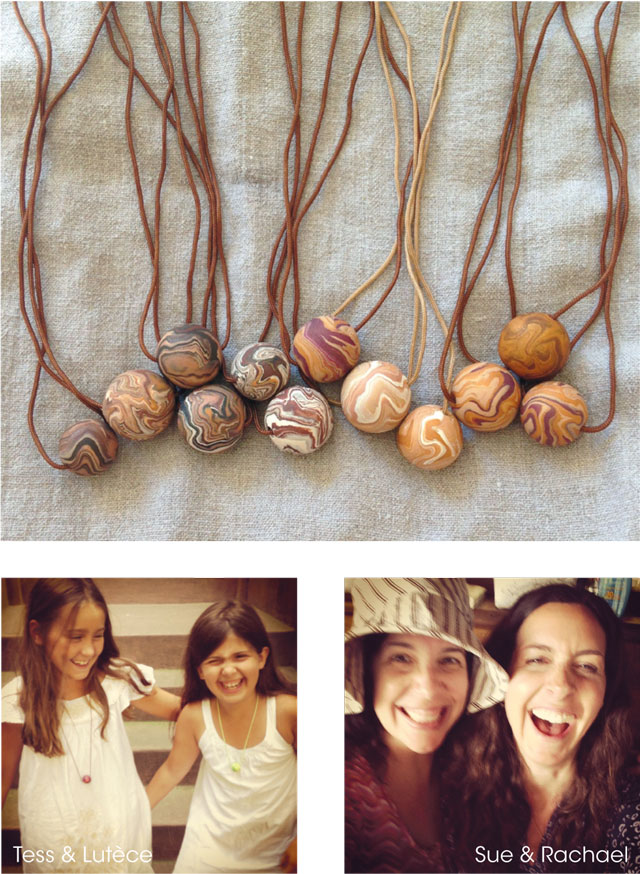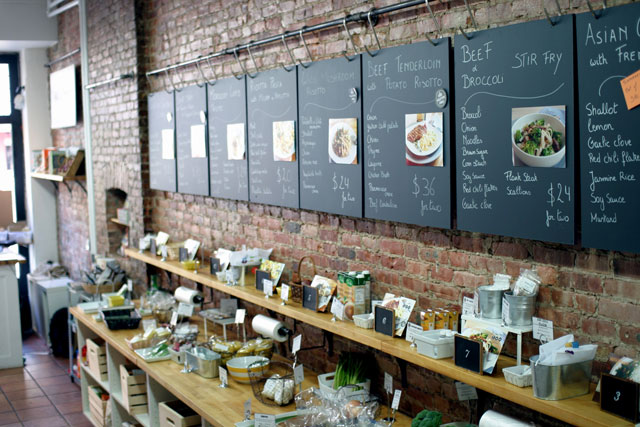Last year Fornino, which had opened in 2010, closed its doors. Nothing too unusual, right? Businesses come and go here in the Slope. It’s not always pleasant, but it’s been the cruel reality of the circle of life on commercial strips like Fifth and Seventh Avenues. However, Here’s Park Slope, a website monitoring the shifting of facades in the neighborhood, gave us all a scare when they shared the landlord’s hope to lease the space to a chain like McDonalds or Olive Garden.
Aside from the obvious horrors of Happy Meals or unlimited soup, salad, and breadstick lunches, the rumor seemed to be the harbinger of something much more depressing—that it’s only going to get harder for local business owners to compete with corporate bohemoths.
While the Fornino space never did end up falling into the hands of the Darden Restaurant dynasty, we were left wondering what it takes for the little guy to hack it in a neighborhood with such fierce competition and ever-rising rents.
To answer this question, we decided to go straight to the source and talk to three business new to the neighborhood. Here is what they have to say about how to make it in Park Slope:

StoryKeep
Two-and-a-half years ago, Lisa Madison and Jamie Yuenger started a business concept no one was searching for, at least not on the web. “The biggest challenge with our business is that we’re not something anyone Googles,” explains Madison. “We have few competitors, but we also face the challenge of explaining to people what we are.”
Madison and Yuenger first crossed paths in 2010 when working on a documentary film together. Madison was a freelancer in the field, and Yuenger was working in broadcasting for WNYC. Both had a mutual love for storytelling and history, and in 2011 they found a way to turn their passions into their livelihoods when they founded StoryKeep. StoryKeep is a service that creates multimedia portraits of families and businesses. Their projects have ranged from interviews with oldest living family members, to historical preservation projects with civic organizations.
“One of the biggest lessons we learned was realizing what we we’re not,” explains Madison. In a time when services like Ancestry.com are making big business off of genealogy, the women had to figure out how to differentiate themselves as storytellers from fact-finders. “Family history is about how stories are told,” says Yuenger. “There aren’t a lot of family heirlooms these days, so we’re hoping to create something that can passed down and shared through generations,” adds Madison.
“The biggest piece of advice I can give to others is don’t expect the first two years to be easy!” says Madison. In a field where there are few predecessors to learn from, the women had to figure things out on their own, from the production process, to marketing, to creating a successful working relationship. Documenting the personal lives of their clients has been a long, ongoing lesson in trust and relationship-building, and so has their developing their business partnership. “Working together is like managing an intense relationship. You have to be in tune with each other, you’re dependent on each other financially, and you’re going to be with each other twelve hours a day,” explains Yuenger.
All the hard work and trust in one another has paid off, though. Yuenger and Madison have quadrupled their clientele and are looking forward to growing their team.

Marbelous
Remember when you were a little kid playing arts and crafts or opening a lemonade stand with your best friend? Maybe you tossed around the idea of flipping those macramé bracelets for some cash or slinging that juice for a quarter? That’s sort of how Marbelous started.
Rachael Stone Olmi and Sue Kramer are best friends with two parallel lives. They bought brownstones on the same block, both married charming Europeans, and have daughters born on the same day and named them Tess and Lutèce, who are also best friends. One day when the families were on vacation together, the girls made clay marble necklaces and gifted them to their moms. Stone Olmi and Kramer realized they had something special after wearing them out and about the first week. “I called Sue and asked ‘Did you get stopped four times on the street wearing your necklace?’ People were asking us where we bought them,” remembers Stone Olmi. All of the comments and compliments from their friends and neighbors got them thinking this could get bigger.
Their daughters conceived the whole idea, and Stone Olmi and Kramer were there to handle setting up the business end of things. While the girls had play dates and brainstormed new designs, the moms set up a Facebook page and started showcasing their work to local boutiques. The first big break was walking into Diana Kane Boutique. “She bought them all,” explains Kramer, “and she ended up selling out of them four times.” Word about the necklaces started spreading virally through the community and beyond. The girls were seeing their classmates sporting them at P.S. 321, and the moms caught wind of people Amy Poehler and Alan Cumming rocking their daughters’ creations. They are now in nine different boutiques throughout the country, and Kramer and Stone Olmi couldn’t be prouder of their daughters.
“Marbelous is about friendship and spreading goodness, and that part of the company is about giving. Ten percent of yearly profits go to Autism Speaks,” shares Kramer. It was their daughters’ stipulation from the beginning that a portion of the profits be donated to a meaningful cause.
Both women have a strong business sense grounded in creative fields. Stone Olmi comes from an interior design background and Kramer is a writer and director. “We feed off their creativity and get back down to that level and see things from their eyes, and they learn things from the business point of view. But we share details with them about business and money,” explains Stone Olmi. “As the kids grow up and the business grows, they will learn about profit and loss and other things that will teach them business sense,” adds Kramer.
Though both moms are far too modest to toot their own horns, when pressed, Kramer hints to the positive impact this could be having on their daughters’ self-perception: “The whole girl power of it all is really awesome. It’s just us gals.”
 The Walk-in Cookbook
The Walk-in Cookbook
For the two years he worked as a banker in London, Guido Molinari ate nothing but take-out. After a long day at work, the last thing he wanted to do was plan a meal, go food shopping, and then spend more time cooking for himself. His business partner, Filip Nuytemans, had a similar experience during his years working as a consultant for Nestle. He spent eleven months out of the year on the road and was at the mercy of whatever hotel restaurants and airlines put in front of him, wishing there was an easier way for him to learn how to prepare healthy, delicious meals for himself.
In 2012 the gentlemen took their mutual culinary plight and turned it into a business plan. “It’s a fundamental difference between life now and before,” explains Molinari. “Our grandparents had something different going on. Now, we are young professionals, or couple who are both working, and despite these responsibilities we want to make sure our day ends in a fulfilling homemade meal.”
The Walk-in Cookbook is designed to make dinner more streamlined—and healthy—for people who already have a full plate. It works like this: Walk in, pick out a meal, and then fill your basket with the pre-portioned ingredients listed on the recipe card. All the meals are designed to take no more than thirty minutes to prepare, and you won’t be stuck with leftover ingredients doomed to camp out in your cabinet until the lease is up. The store features eighteen recipes at a time, including appetizers and mains (desserts are forthcoming), and also caters to customers who are gluten-free and vegetarian. They even offer local delivery to Park Slope and Prospect Heights. “We decided to get people to cook again. Make it fun. Make it fast. And they don’t have to worry too much about what they are going to buy,” says Nuytemans.
While the concept of The Walk-in Cookbook came from their guts, Nuytemans and Molinari took a measured, strategic approach when it came to putting things into practice. When scouting locations, the duo spent many a frigid afternoon sitting on the sidewalk counting pedestrians and collecting data. “At first people told us it wouldn’t work; we would have to change the way people thought about grocery shopping,” confesses Molinari. But as Nuytemans observes, “People in Brooklyn are the most receptive to innovation.”
That’s not to say they didn’t have to deal with their share of conflicts. Between building permits, renovations, and inspections, the process of opening the store in the former Noella Brew Bar space involved more money and time than anticipated. “That’s probably why corporations like Starbucks are moving in—because they have much more money to work with and navigating the red tape has been much easier. They’re able to pay their rent while they are sitting around waiting for approval on permits,” notes Nuytemans.
The upside is that these initial growing pains have helped inspire their conviction to support their fellow small business owners and source locally whenever possible. Nuytemans explains that after months of waiting around for permits, approvals, and paying rent, the plight of the small businessman resonates with them on a visceral level. “Opening a business here has made us understand why it’s so important to support what’s happening here locally.”

Leave a Reply